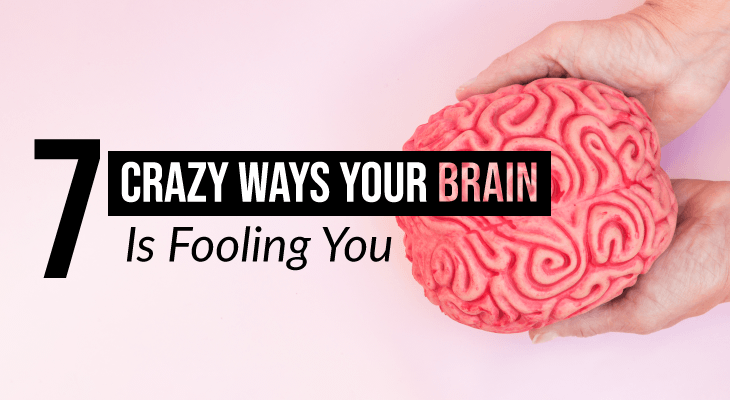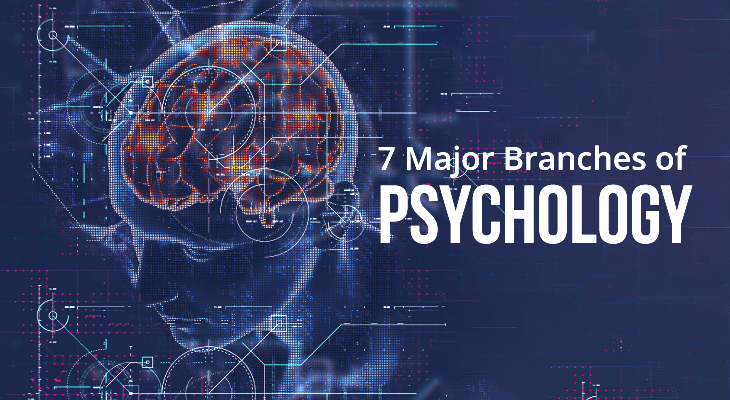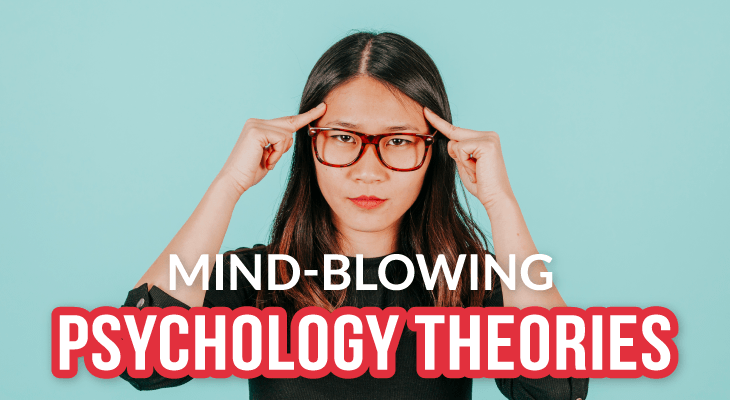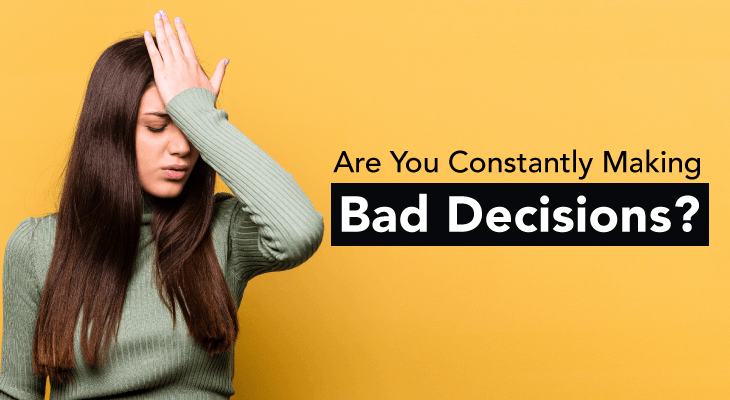7 Crazy Ways Your Brain Is Fooling You
Do you think a show like Brain Games has prepared you for mind-boggling psychology facts? Think again! Find out more here.
Updated 25 May 2022

From having an unlimited storage capacity much bigger than the latest iPhone to controlling every single muscle in the body, the brain can be a powerful tool.
However, it can oftentimes mislead us into believing something that isn’t true.
Here are 7 fascinating things the brain does to fool you — all without you knowing!
#1. Memories can be planted

You probably have a memory of getting lost in a shopping mall when you were a child, but how sure are you that the incident really happened? It is possible that these recollections were planted by your parents and you are able to generate rich and detailed memories from it!
This psychological phenomenon called the misinformation effect paradigm was coined by Elizabeth Loftus after attempting to establish whether memories can be altered — and she was right!
In an experiment to investigate this, Loftus focused on eyewitness recollections for court trials where providing testimonies were crucial. Loftus would provide misleading information and leading questions that could affect their recollection from the original event — the eyewitness ended up providing false memory recounts based on Loftus’ incorrect information during court!
Essentially, we can come to believe things that didn’t happen, and these recollections can feel and look like regular memories from all the suggestive information that we digest along the way. This just shows that our brain can be somewhat unreliable than we intend it to be.
#2. False memories can even occur in large groups

Is it KitKat or Kit-Kat? Febreze or Febreeze? And can you recall whether Pikachu has a black tip on his tail or not?
Here's the answer: It’s KitKat without a hyphen, it’s Febreze without the extra ‘e’ and no, Pikachu does not have a black tip on his tail.
If you’re surprised that you got them wrong, don’t worry, you’re not alone. Plenty of people around the world falsely remember these too!
Termed the ‘Mandela Effect’, it refers to a phenomenon where a large number of people believe something occurred when in reality, it did not. It was coined by Fiona Broome based on an incident where the whole world was convinced Nelson Mandela had died in the 1980s — when he was, in fact, very much alive! His real death was actually in 2013.
A scientific explanation for this is that the mind sometimes misconstrues existing memories. It is when our brain tries to fill in the gaps that are missing in our memories to make more sense of them. Consequently, you begin to remember details that never happened! Adding the role of the internet into this equation, this information can be widespread and fool almost anyone.

Monash University Malaysia
Bachelor of Psychology
✓Accredited by the Australian Psychology Accreditation Council (APAC)
#3. Your brain is quick to believe someone who proclaims to be an expert

If someone with a lab coat tells you something about your health or your dietary plan, chances of you agreeing with them are pretty high. But how sure are you that they are an expert in the field or merely just an actor in a lab coat?
This common mistake is known as the expert fallacy. It is when you claim a fact to be true just because it was spoken by an expert without taking into consideration the evidence or if the expert is even from the right field. For example, just because a surgeon proclaims some facts about mental illness doesn’t necessarily mean he is right as it is not his field of expertise, even if he is a doctor.
Of course, we’re not saying that you shouldn’t believe your doctors. But it is important to always fact check information — including ones you see on social media or sent by your relatives in WhatsApp groups.

#4. You rely too much on your first reference point when making a decision

Believe it or not, we actually rely most of our decision making on the first piece of information that we get — be it pricing or behavioural patterns. In a way, this cognitive bias and our habits to compare is what help us to dictate our next move when we come across a conflict.
This cognitive bias is referred to as the anchoring effect. Psychologists Amos Tversky and Daniel Kahneman explained that people tend to favour the first bit of information they learned in order to make subsequent decisions. It comes to a point that all negotiations made are based on the anchor.
For instance, you want to buy the newest boba drink from shop A but it costs you RM10. On the other hand, shop B offers the same drink for RM8. Based on your anchoring of the first information you get (shop A), you bought the drink from shop B. How could you not resist? It’s RM2 cheaper! Except, you didn’t acknowledge the fact that other shops are selling the same drink for even less as compared to shop B. This is how the anchoring effect heavily impacts your decision making.
You shouldn’t berate yourself for making hasty decisions as we all have fallen victim to this trap. The next time you come across a conflict, do your research and consider all options to avoid the anchoring effect on your choices.
Apply for university with EduAdvisor
Secure scholarships and more when you apply to any of our 100+ partner universities.
Start now#5. Your brain is quick to assign blame

What was your first thought when you heard one of your classmates handed in their assignment late? Do you think they are slothful or do you believe they had personal issues to deal with, thus delaying the work?
If you chose the former — you have committed a fundamental attribution error.
Created by social psychologist Lee Ross in 1977, this term basically summarised our tendency to target a person’s characteristics while disregarding the situational factor that affected their decisions in the beginning. Yet, when it comes to us — we’re quick to defend our mistakes by blaming it on the situation.
The next time you come across a situation like this, think — is this person bad or are they just caught in a bad situation? Give others a break as much as you like to be given one yourself.

Monash University Malaysia
Bachelor of Psychology
✓Accredited by the Australian Psychology Accreditation Council (APAC)
#6. You tend to underestimate threatening situations

You know that smoking can lead to serious lung diseases. You are also well aware that overspending can burn a hole in your pocket. You also know that you may risk exposing yourself to contagious infections if you go out during a pandemic.
So why do we choose to ignore these risks?
This is because of the ostrich effect — and like ostriches, we tend to stick our head in the sand when we sense danger… and to avoid them. According to psychologists, people are more likely to minimise threat warnings by ignoring the negative information or simply refuse to believe the adverse effect it could have on them to avoid feeling uncomfortable.
While it is a horrible defence mechanism, it is a pretty accurate metaphor. However, you can stop this vicious cycle if you practise healthy steps to change this habit such as setting a budget and be more health-conscious.

#7. Your brain makes you think you’re a trendsetter

Do you ever listen to an underrated song for the first time and all of a sudden, it’s playing everywhere? From department stores to Instagram stories — you can’t shake off feeling that perhaps you’re the reason why it has gone viral.
Well, this actually happens more often than you think for a lot of people!
Known as the Baader-Meinhof Phenomenon, it is when information you just learned starts to “appear” everywhere. Technically, it’s not that these things are suddenly appearing out of the blue, but it’s because you’ve selected this bit in your mind, you start to notice it more often.
Our brain is very good at tuning out irrelevant information but once we do retrieve bits that we want, we begin to confirm our suspicions. On that account, you don’t actually possess a superpower that makes things go viral, instead, it’s just your selective bias that your brain chooses to focus on!
With these cool facts, you’ve taken a peek at how interesting psychology can be and how it can play a big part of daily life. Now you know when to be mindful so you are aware of these tricks your brain has been pulling!






